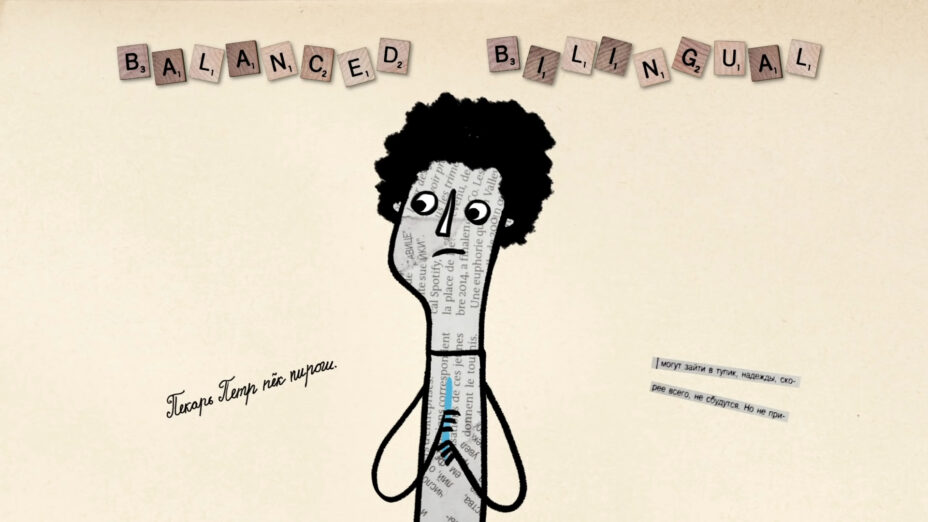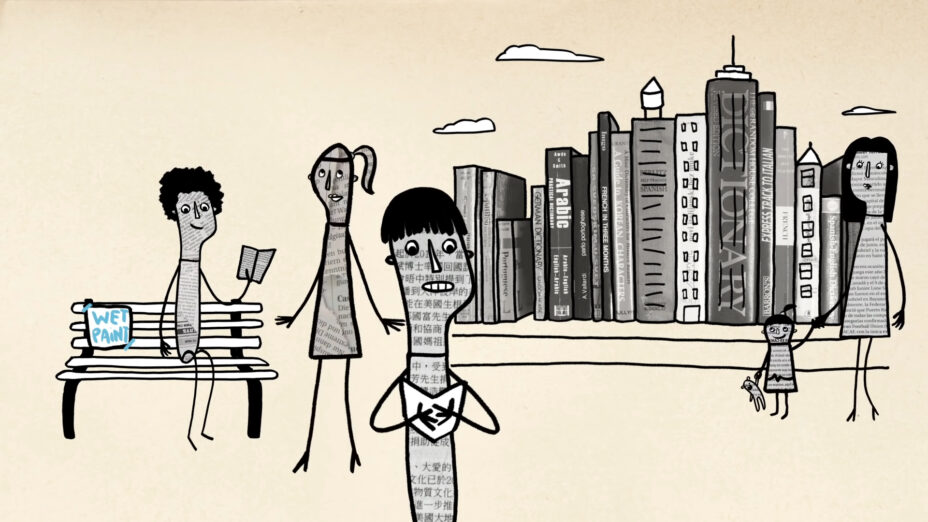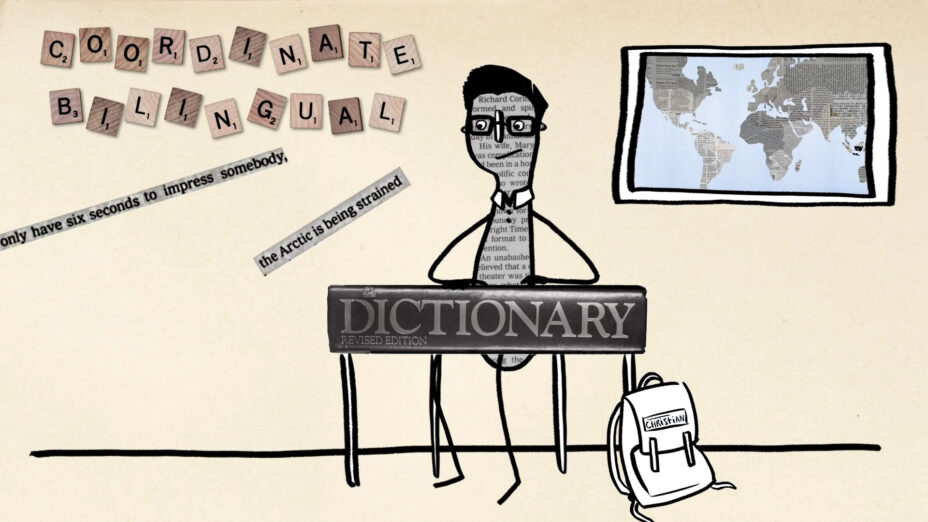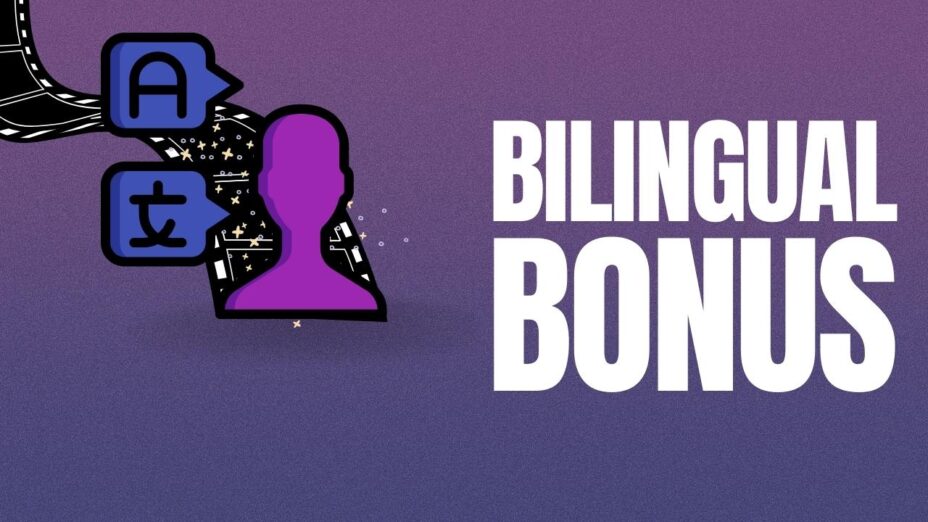A literary trope is a tool that authors use to add depth and flavor to their narratives. Among these, the Bilingual Bonus stands out as a unique and intriguing device. It involves incorporating elements of a foreign language into a story, offering an additional layer of meaning or humor to those familiar with the language. This post delves into the essence of the Bilingual Bonus, exploring its definition, examples, and the art of using it effectively in literature.
Defining the Bilingual Bonus
What is the Bilingual Bonus?
The Bilingual Bonus is a literary device where authors insert words, phrases, or even entire dialogues in a language different from the main language of their work. This technique creates a ‘hidden message’ accessible only to readers or viewers who understand that particular language. It’s like an exclusive joke or a secret nod that adds an extra layer of enjoyment for multilingual audiences.
Examples in Media
- In film, the Bilingual Bonus often appears as humorous easter eggs. For instance, in “Anchorman: The Legend of Ron Burgundy,” a Mexican restaurant is named “Escupimos en su Alimento,” which translates to “we spit in your food” in Spanish.
- In literature, Terry Pratchett is a notable user of this trope. In “Making Money,” he uses the phrase “jikan no muda,” which carries different meanings in Japanese and Croatian, adding a layer of humor for those who understand either language.
The Value of Bilingual Bonus in Storytelling
Why Include a Bilingual Bonus?
The Bilingual Bonus isn’t just for laughs; it can enrich a narrative in several ways. It adds depth to the storytelling, allowing authors to embed additional layers of meaning. This can be particularly effective in comedy, where the trope adds line-by-line humor, or in more serious works, where it can foreshadow events or deepen character development.
Smilarly, the creative use of language and narrative devices can be seen in the imaginative prompts that inspire writers to craft unique and engaging fantasy stories.
Beyond Comedy
- The trope can foreshadow upcoming events. For example, a plot twist in “Iron Man” is hinted at in Urdu early in the movie.
- It can also be used to reinforce themes or character traits, such as naming a shifty character with a word that means “shifty” in another language.
Crafting the Bilingual Bonus Without Cliché

Balancing the Hidden Message
The key to a successful Bilingual Bonus is subtlety. The foreign phrase should not distract readers who don’t understand the language. If the phrase is too prominent, readers might look it up, losing the magic of the hidden message.
Avoiding Obviousness in Names
- Names in stories should be chosen carefully. Avoid on-the-nose translations like naming a cold character “Mrs. Frio.” Instead, opt for words that are clever and could plausibly be coincidental.
- A name with multiple interpretations, like “Hua Ping” in “Mulan” can add depth to a character without seeming forced.
The Humor in Bilingual Bonus
The Role of Humor in Bilingual Bonus
Enhancing Comedy through Language
The Bilingual Bonus is a treasure trove for humorists. It allows for the inclusion of jokes that resonate on a different level with multilingual audiences. These jokes can range from subtle wordplays to blatant, yet hidden, humor.
Examples of Humorous Bilingual Bonus
- The aforementioned example from “Anchorman” is a classic case where the humor is derived from the audience’s language knowledge.
- Terry Pratchett’s use of the phrase “jikan no muda” in “Making Money” is another example where the humor is multilayered, appealing to those who understand Japanese, Croatian, or both.
The Impact of Bilingual Jokes
Creating an Exclusive Experience
For those in the know, bilingual jokes provide a sense of exclusivity and cleverness. It’s akin to being part of an inside joke, enhancing the reader’s engagement with the story.
Limitations and Considerations
- While these jokes can be highly effective, they also risk alienating readers who do not understand the language.
- The humor should be integrated naturally, without forcing readers to stop and translate to get the joke.
Crafting Effective Bilingual Humor
Subtlety is Key
The most effective bilingual jokes are those that blend seamlessly into the narrative. They should be understandable in context, even if the language is not known to the reader.
Avoiding Overuse
- Overusing this trope can make the narrative feel gimmicky. It’s important to use it sparingly and where it adds real value to the story.
- The humor should not rely solely on the language difference but should also be inherent in the situation or character interactions.
Bilingual Bonus as a Narrative Device

Enhancing Storytelling with Bilingual Elements
Deepening the Narrative
The Bilingual Bonus can add layers of meaning and subtlety to a story. It’s not just about the words themselves but about what they imply about the characters, setting, or situation.
Examples of Narrative Enhancement
- In “Iron Man,” the early mention of a plot twist in Urdu sets the stage for later revelations, adding a layer of foreshadowing.
- In “Mulan,” the name “Hua Ping” is rich with meanings, each adding to the complexity of the character and her situation.
The Bilingual Bonus in Character Development
Reflecting Character Backgrounds
The use of multiple languages can reflect the diverse backgrounds of characters, adding authenticity and depth to their portrayal.
Subtle Characterization
- A character who casually uses phrases from another language can reveal aspects of their history, education, or personality.
- This trope can also be used to highlight contrasts between characters, such as when a multilingual character interacts with those who only speak one language.
Crafting a Multilingual Narrative

Integrating Languages Naturally
The key to using the Bilingual Bonus effectively in narrative development is to integrate it naturally. The foreign language elements should feel like a coherent part of the story, not an added gimmick.
Considerations for Writers
- Writers should be mindful of their audience and the accessibility of their story. While the Bilingual Bonus can add depth, it should not be essential for understanding the plot.
- The use of foreign languages should be consistent with the setting and characters, adding to the realism and immersion of the story.
FAQs
Can the Bilingual Bonus be used in genres other than comedy?
Absolutely! While it’s often used for humor, the Bilingual Bonus can also add depth to dramatic, mystery, or fantasy genres by providing foreshadowing, character depth, or cultural richness.
How can authors without multilingual skills effectively use this trope?
Authors can collaborate with language experts or do thorough research. It’s crucial to ensure accurate usage to avoid misrepresentation and to maintain authenticity.
Does the Bilingual Bonus risk alienating readers who don’t understand the language?
There is a risk, but it can be mitigated by ensuring that the overall narrative is still accessible and enjoyable without understanding the additional language.
How can the Bilingual Bonus enhance character development?
It can reveal a character’s cultural background, education, or personality traits subtly, enriching the reader’s understanding and connection to the character.
Are there any ethical considerations in using this trope?
Yes, it’s important to use languages respectfully and avoid perpetuating stereotypes or cultural insensitivities.
Can the Bilingual Bonus be effectively used in children’s literature?
Yes, it can be a great tool for introducing young readers to new languages and cultures in a fun and engaging way.
How does the Bilingual Bonus impact the translation of a work?
It poses unique challenges for translators who must find ways to convey the same effect in the target language, sometimes requiring creative solutions.
Final Words
Embrace the world’s linguistic diversity in your storytelling. The Bilingual Bonus, when used with skill and sensitivity, can turn a good narrative into a memorable, multidimensional experience.

